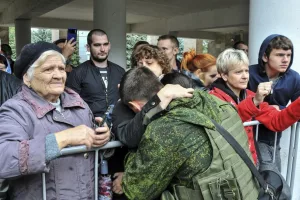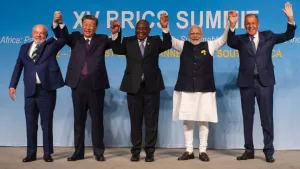On July 23, the Spanish general elections took place, but no party managed to secure an absolute majority of seats in the Congress of Deputies. The People’s Party (PP) secured 136 seats, while the Spanish Socialist Workers’ Party (PSOE) secured 122 seats. However, to attain the requisite absolute majority, a party needs a total of 176 seats. This situation prompted the two largest parties to seek out alliances, in order to form majority-winning coalitions.
When it came to forming alliances, PSOE sought partnerships with several parties. Among these, there is the Sumar party which retained 31 seats. Additionally, PSOE aimed to garner support from various other parties, including the Basque Nationalist Party (PNV), the pro-independence Catalan Republican Left (ERC), the far-left Basque Bildu party, and the Galician Nationalist Bloc (BNG). While achieving this alliance for an investiture vote seemed feasible, the process proved to be complex.
How has this alliance helped Junts gain political leverage?
In this situation, the key player was Junts, a political party led by Carles Puigdemont. He was the former President of the Government of Catalonia and was a big part of the unauthorized independence vote in 2017. After that, he went to Belgium to avoid getting arrested. In 2020, a Belgian judge suspended the arrest warrant against Puigdemont. In July, Junts’ support for Francina Armengol, the socialist candidate for the presidency of the Spanish parliament, became crucial as it would bring enough votes for PSOE to win the absolute majority. In return, Spanish Prime Minister Pedro Sánchez consented to advocate for the recognition of Catalan as an official language of the European Union.
What has happened since the declaration of the coalition?
Once the alliance was established, this commitment materialized. Pedro Sánchez emerged as a strong advocate of multilingualism, urging the acknowledgment of Basque, Catalan, and Galician as official languages within the EU. This significant proposition took the form of a letter sent by Spanish Foreign Minister José Manuel Albares to the rotating presidency of the Council of the European Union and the body’s secretary-general, Thérèse Blanchet.
The proposal highlighted that “Spanish languages other than Castilian that enjoy official status in Spain” should be included among the EU’s existing 24 official languages. Albares further recommended that the General Affairs Council address this matter during its scheduled meeting in September.
This sequence of events has substantially bolstered Carles Puigdemont’s political influence, marking his noteworthy return to the political arena. It is an opportune moment for him to capitalize on increased political leverage, particularly considering the General Court of the European Union’s validation of the removal of immunity from former president Carles Puigdemont at the beginning of July.
He is already more active, as on August 21, he journeyed to Codalet, France, just over 60 kilometers from the Spanish border. This was his first move outside Belgium after losing parliamentary immunity. He went there to attend a tribute event for composer Pau Casals, hosted by the Universitat Catalana d’Estiu (UCE) at the Sant Miquel de Cuixà abbey. This event also saw the participation of Catalonia’s current president, Pere Aragonès, along with former presidents Jordi Pujol, José Montilla, and Quim Torra.
To conclude, in the aftermath of the elections on July 23, Junts and its leader garnered notable political leverage. However, whether this newfound momentum for Junts will endure remains unclear.
Photo by: Fernando Calvo






